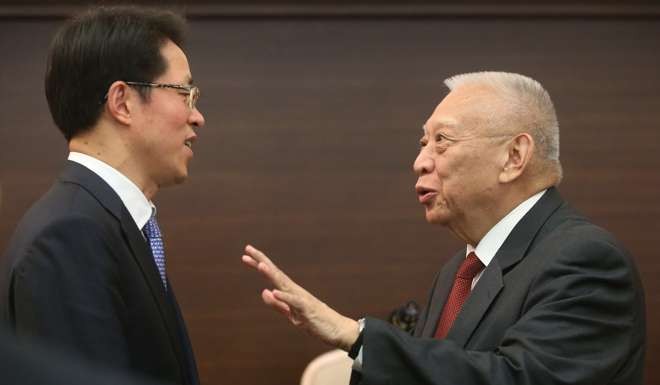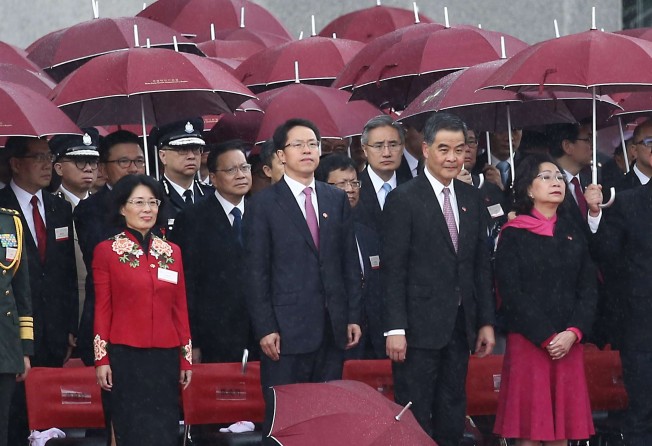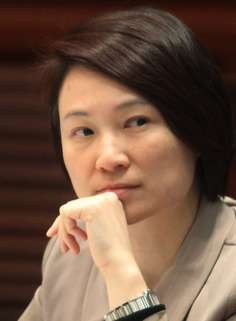
Hong Kong must wake up to the danger of Beijing’s meddling
Gary Cheung says the liaison office’s increasingly assertive role in local politics contravenes the central government’s promise of a high degree of autonomy for the SAR

When veteran diplomat Jiang Enzhu arrived in Hong Kong in 1997 to become the first director of the central government’s liaison office in the city, he tactfully brushed aside the barrage of questions by describing Hong Kong as an “abstruse book” from which he would strive to learn. During his five-year stint as Beijing’s de facto envoy to the city, Jiang kept his head down and seldom commented on Hong Kong’s internal affairs. Other senior officials from the liaison office were barely visible at public functions.
Beijing’s low profile at the time reflected the confidence the central government had in Hong Kong to run itself. To many, such invisibility is now a distant memory.
Shocked by the 500,000-strong march against national security legislation in 2003, Beijing has since cast aside its hands-off approach. When Tung Chee-hwa introduced the ministerial system in 2002, the candidates he nominated did not need to have interviews with Beijing officials as the central government had full trust in Tung. But people in the know told me that the newcomers in Donald Tsang Yam-kuen’s team of ministers in 2007 had to go through interviews with the central government before they were appointed.

It is no secret that the liaison office has played an increasingly active role in coordinating candidates from the Beijing-friendly camp in the city’s elections since 2003. Ahead of the 2005 chief executive election, Chua Hoi-wai, a member of the social welfare subsector of the Election Committee which selected the city’s leader, told me that liaison office representatives took his fellow Election Committee members to lunch and asked them their views on the election, which he considered inappropriate.
His comments, which I reported, drew little attention at the time. Perhaps many Hongkongers believed it was no big deal as it was natural for Beijing to exert some influence on the election of Hong Kong’s leader.
In 1982, the then director of the Hong Kong and Macau Affairs Office memorably described Hong Kong’s handover as involving only a change of flag and governor. It would be naive to believe this, but the liaison office has crossed a line with its growing assertiveness.

Hang on. Why should Beijing “care” about who will become the next Legco president? Beijing asserted its power in 2004 to decide the city’s political system via an interpretation of the Basic Law. But what difference does it make on the development of our political system whether Tse or Andrew Leung Kwan-yuen, the front runner for the job, becomes Legco president?
Hongkongers should no longer be blasé about Beijing’s interference in Hong Kong’s internal affairs, which defies the logic of the high degree of autonomy promised in the Basic Law.
In an article published last year in China Law Review, a mainland magazine affiliated with the Ministry of Justice, Tsinghua University law professor Cheng Jie warned against the danger of the central government directly taking part in Hong Kong politics. The people who staff the liaison office in Sai Wan should make Cheng’s article a must-read.
Gary Cheung is the Post’s political editor